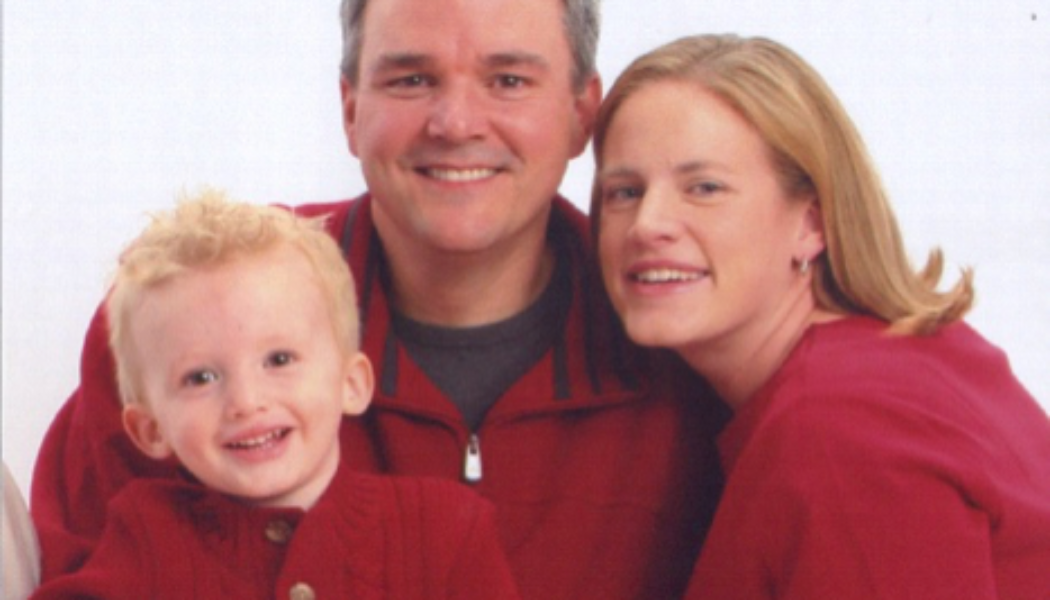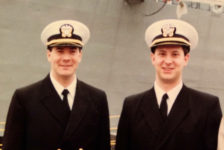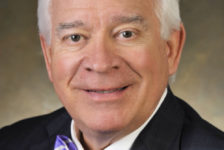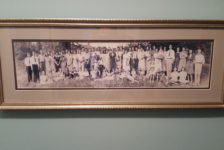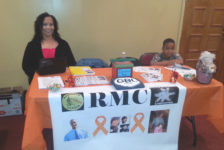Megan Smith, head softball coach for the KU Jayhawks, shares the moving story of losing her husband to sarcomatoid renal cell carcinoma.
My name is Megan smith. I am the head softball coach at the University of Kansas and I have a 10-year-old son named Cooper. I lost my husband in 2011 to kidney cancer when he was 40 years old.
In the fall of 2010, my husband, Paul started feeling very fatigued and was losing weight. He had started a new work-out program, so we thought he was just losing weight because of that. I urged him to go to the doctor and at first they thought it was just a hormonal issue and started him on some supplements. As time progressed into the holidays, I felt that he did not look good and his weight loss did not seem healthy. He wasn’t as worried and we enjoyed what we didn’t know would be our last Christmas together.
In late January of 2011, Paul felt a lump in his stomach and went to the doctor. His doctor sent him to a urologist to examine him further. They did scans and realized that he had a growth on one of his kidneys. They scheduled surgery to remove his kidney the week before our season started. The growth on his kidney was the size of a volleyball. After testing the mass, the doctors determined it was cancerous and diagnosed Paul with sarcomatoid renal cell carcinoma which is one of the most rare and deadly types. The prognosis was not good and Paul’s oncologist let us know that this type of cancer was not treatable with radiation or chemotherapy. They would just remove the kidney and hope that it would not come back.
Paul had his kidney removed in February and started an experimental drug to see if it would slow down the process. The doctor knew that it would return at some point, but was hoping this experimental drug would give him more time. Paul recovered from the surgery and started the drug. He was able to go back to work and was able to take care of our 3-year-old son, Cooper while I was coaching during our season.
Everything went back to as normal as it could under the circumstances until he started having pain in his stomach. He went back to his oncologist and they did more scans and realized that the cancer had returned in the lining of his stomach. His stomach would routinely fill up with fluid and Cooper and I would have to drop him off at the hospital on a weekly basis to get his stomach drained. With the new findings, the oncologist thought that chemotherapy would help stall the cancer spreading and give him more time, so he started that process immediately.
After his first chemotherapy experience, we came home and throughout the night he became increasingly sick. He was so sick, he became unable to move. I called the paramedics and they rushed him to the hospital. Since we had no family in Kansas, I had to call a friend to come and sit with Cooper so he would not see what was happening and be scared. He recovered from that and continued the treatment to try to slow the cancer.
He became too sick to be home, so he was admitted into the hospital. He spent the next week or so in the hospital and started feeling a little better and he became hopeful. The doctor told me to not get my hopes up and that he probably only had a week left. She recommended we take him home to say goodbye and so he would be comfortable. We went home for a day and he was able to say his goodbye to Cooper and our dog Buddy. On the second day of being home, I could tell he was getting worse and he became unable to communicate. Not wanting our son to see him in that state, I went with him to hospice care for his last two days. I laid in bed with him and on June 21, 2011, he passed away in my arms. That was two days after Father’s Day and after our seventh wedding anniversary.
Cooper and I are still in Kansas. Life has been extremely hard here since Paul’s death. My father and Paul’s parents have now started taking turns coming to Lawrence (from North Carolina and Louisiana respectively) to help me take care of Cooper. The University of Kansas athletic department has also taken care of us far beyond what I could have imagined. It is hard for Cooper – he was too young to remember anything about his father. I make sure that we talk about him every day and I want him to know everything about him. It has been such a joy to see Cooper grow up and have so many of Paul’s great qualities.
Each season, we dedicate a game to the memory of Paul and to raise awareness for kidney cancer. Our players wear orange jerseys and Cooper throws out the first pitch to honor his dad. We do a silent auction to raise money and we also educate our fans on the symptoms of kidney cancer. Our orange game last season was a huge success. We played nationally ranked Baylor and won 6-4. This season we will hold our orange game and honor Paul on Saturday, March 31st versus Colorado State.
Kidney cancer is something that has completely changed the course of my life and my son’s life. I am hopeful that more people are becoming aware and that a cure will be found.

